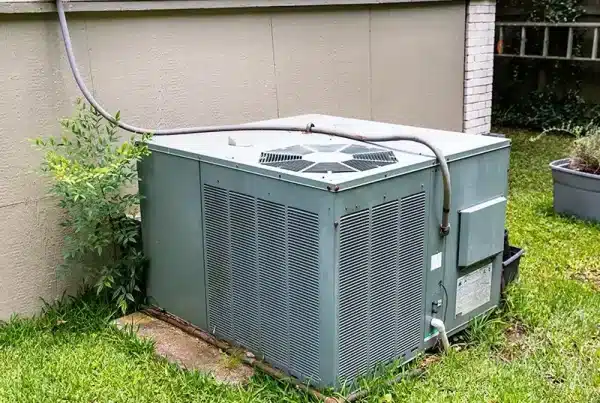About Solar Panel Transfer
Selling a home with solar panels isn’t as simple as transferring ownership to the next buyer. Solar agreements contain specific restrictions that can derail real estate transactions, delay closings for months, or force sellers to pay thousands in unexpected costs. Understanding these complications before listing your home can save you significant time, money, and frustration.
Nevada real estate broker Spencer Walden recently dealt with a solar transfer issue that kept a property off the market for an entire year. The buyer was an LLC, and the solar company refused the transfer. After fighting the restriction for 12 months, the seller had to re-list the property and find an individual buyer to complete the solar assumption.
Solar Companies Block Business Entity Transfers
The most significant solar transfer restriction involves buyer entity types. Solar companies refuse to transfer agreements to LLCs, corporations, or other business entities. They require individual persons to assume solar financing or lease agreements.
This restriction creates immediate problems for real estate investors, business owners, and buyers who typically purchase property through corporate structures. Cash buyers can still use business entities, but financed purchases must go through individual names.
Spencer Walden experienced this firsthand with a flip property. His company bought homes through an LLC, but the solar company wouldn’t allow the transfer. They had to pay off the entire solar balance to complete the purchase, adding unexpected costs to the investment.
Credit Qualification Separate from Mortgage Approval
Buyers must qualify for solar independently from their mortgage approval. A buyer can have sufficient income and qualify for the home loan, but still get denied for solar transfer due to credit score requirements.
Walden shared an example where a qualified buyer with adequate income couldn’t assume the solar agreement because of credit score minimums. The seller had to pay off the solar system to make the deal work. This situation occurs more frequently than most homeowners realize.
Solar companies evaluate buyers using their own underwriting criteria, which may be stricter than mortgage lender requirements. The approval process can take 30-60 days, extending standard closing timelines significantly.
Documentation and Timeline Requirements
Solar transfers require extensive paperwork and specific timeframes that real estate agents often underestimate. Listing agents should prepare all solar documentation before marketing the property, not after receiving an offer.
The documentation process includes:
- Current solar agreement terms and conditions
- Transfer application forms specific to the solar company
- Buyer qualification requirements and credit criteria
- Outstanding balance calculations and payoff amounts
- Tax credit status and potential recapture obligations
Walden emphasizes that successful agents prepare this paperwork in advance because they understand the complexity involved. Teams that handle solar transfers regularly assign specific staff members to manage the process, ensuring nothing gets overlooked.
Tax Credit Complications Add Financial Risk
Solar installations are often qualified for federal and state tax credits that the original homeowner claims. When transferring solar agreements early in the system’s life, sellers may face tax credit recapture requirements, meaning they must repay a portion of the credits received.
These recapture obligations aren’t always obvious during the listing process. Sellers need to consult with tax professionals to understand potential liabilities before committing to solar transfers. The recapture amount varies based on how many years the system has been operational and the original credit percentage.
Contract Problems Beyond Solar Issues
Real estate contracts contain additional complications that affect solar transfers and overall transaction success. The due diligence period structure creates timing pressures that can kill deals even when all parties want to proceed.
Due Diligence Periods Too Short for Complex Issues
Standard 10-14 day due diligence periods don’t provide sufficient time for solar transfer processing, repair negotiations, and other transaction requirements. Either party can let deadlines expire, causing the buyer to accept the property “as is” or allowing deals to fall apart.
Walden recommends including automatic extension clauses in purchase agreements. For every day the seller doesn’t respond to repair requests or other buyer communications, the due diligence period extends by one day. This clause protects buyers from sellers who try to run out the clock on negotiation periods.
Buyers should submit repair requests by day seven or eight of a 10-day period, giving sellers adequate time to respond while preserving negotiation opportunities. The extension clause ensures sellers can’t avoid responding until after the deadline passes.
Earnest Money Deposit Rules Create Surprises
In Nevada, earnest money deposits aren’t considered material facts, meaning sellers can’t cancel purchase agreements simply because buyers haven’t deposited funds within the specified timeframe. This rule surprises many real estate participants who assume earnest money deposits are mandatory for valid contracts.
A contract becomes binding upon acceptance, regardless of earnest money status. However, if buyers pass all contingencies and then withdraw without depositing earnest money, sellers have limited recourse for collecting damages.
Walden’s team includes custom clauses giving sellers cancellation rights when buyers fail to deposit earnest money within the agreed timeframe. Without this custom language, the standard purchase agreement doesn’t provide adequate seller protection.
MLS Listing Requirements During Contract Periods
Once buyers and sellers execute a purchase agreement, MLS rules require the property status to change to “under contract showing” even if earnest money hasn’t been deposited. Agents cannot continue marketing the property as available or accept backup offers until earnest money is received.
This rule creates risk for sellers when buyers delay earnest money deposits. The property comes off the active market based on contract execution, not earnest money receipt. If the buyer withdraws after several days or weeks, the seller has lost valuable marketing time.
Disclosure Requirements and Agent Responsibilities
Real estate agents must disclose material facts they know about properties, even when sellers don’t want to include information on disclosure forms. This obligation creates tension between agent knowledge and seller preferences.
Material Fact Disclosure Obligations
When agents know about property defects or issues that affect value or desirability, they must disclose this information regardless of what sellers mark on disclosure forms. The disclosure obligation applies to structural problems, mechanical system issues, neighborhood conditions, and other factors that influence buyer decisions.
Walden provided an example of windows in a specific area that were 40 years old and deteriorating. While the seller argued the windows were “just old, not broken,” the agent’s knowledge of their poor condition created a disclosure obligation. The windows still functioned but would likely fail inspection, requiring disclosure to prevent post-closing disputes.
The challenge lies in defining what constitutes a “defect” versus normal aging. Agents aren’t licensed inspectors or contractors, so they must balance disclosure obligations with professional scope limitations. When in doubt, disclosure protects all parties better than non-disclosure.
Property Condition Assessment Boundaries
Real estate agents aren’t qualified to perform detailed property inspections or determine structural integrity. Their job involves marketing and selling homes, not evaluating construction quality or mechanical system functionality.
However, agents must disclose obvious problems they observe during property visits. Loose bathroom tiles, damaged grout, deteriorating window frames, or other visible issues may require disclosure depending on their severity and impact on property functionality.
The professional inspection process after contract execution typically identifies these issues anyway. Buyers will submit repair requests based on inspector findings, so early disclosure helps manage expectations and prevent post-inspection surprises.
Avoiding Wholesaler Complications
Wholesaling activity creates additional complications in real estate transactions. Wholesalers tie up properties under contract with no intention of closing, then attempt to assign their contracts to other buyers for fees.
Improper MLS Marketing by Wholesalers
Some wholesalers hire real estate agents to list properties on MLS as “available” when the properties are actually under contract to the wholesaler. This practice violates MLS rules because the properties aren’t truly available for sale.
Wholesalers have the right to market their contract assignments, not the underlying properties. The distinction matters for MLS compliance and buyer protection. Properties under contract to wholesalers should be marked accordingly, not listed as available inventory.
Legitimate wholesalers like Noah Herrera use their own money to purchase and renovate properties before reselling. This approach differs from contract assignment wholesaling, which relies on finding buyers before closing on the original purchase.
Social Media Wholesaling Education Problems
TikTok and other social media platforms promote wholesaling as an easy way to make money in real estate without licenses or education. These videos encourage people to tie up properties under contract and find assignment buyers to generate income.
While some wholesalers do make significant monthly income from this activity, the success rate is much lower than social media suggests. Many wholesalers tie up properties they can’t assign, creating problems for sellers who take their properties off the market for unqualified buyers.
Real estate professionals and property owners should verify wholesaler qualifications and financial capacity before entering into agreements. Legitimate wholesalers provide proof of funds and clear assignment terms upfront.
Preparing for Solar Transfer Success
Homeowners with solar systems need advanced preparation to avoid transfer complications during real estate transactions. The preparation process should begin 30-60 days before listing the property.
Pre-Listing Solar Documentation
Contact your solar company to obtain current agreement terms, transfer requirements, and payoff calculations. Solar companies often take several weeks to provide complete information, so early requests prevent listing delays.
Gather the following documentation:
- Original solar installation agreement and terms
- Current account status and payment history
- Transfer application forms and qualification criteria
- Outstanding balance and payoff amount calculations
- Tax credit status and potential recapture obligations
This documentation helps listing agents provide accurate information to potential buyers and their representatives. Complete information prevents misunderstandings and negotiation delays later in the transaction process.
Buyer Qualification Planning
Understand that potential buyers must qualify for solar assumption separately from their mortgage approval. Share qualification criteria with your listing agent so they can pre-screen interested buyers.
Consider offering to pay off the solar system if qualified buyers can’t assume the agreement. Calculate the payoff amount against potential sale price reductions or extended marketing time to determine the most cost-effective approach.
For investment properties, recognize that LLC or corporate buyers will require cash purchases or seller-financed arrangements. Traditional financing won’t work for business entity buyers when solar assumptions are involved.
Contract Protection Strategies
Protect your interests during real estate transactions by understanding contract terms and including appropriate protective clauses. Standard purchase agreements don’t always provide adequate protection for complex situations involving solar transfers.
Custom Clause Recommendations
Include automatic due diligence extensions in purchase agreements to prevent sellers from avoiding responses until deadlines expire. This clause ensures adequate time for solar transfer processing and repair negotiations.
Add specific earnest money deposit requirements with seller cancellation rights if buyers fail to deposit funds within agreed timeframes. Standard Nevada purchase agreements don’t provide this protection automatically.
Specify solar transfer completion requirements and alternative arrangements if transfers fail. Clear contract language prevents disputes when solar companies deny assumptions or buyers can’t qualify.
Timeline Management
Submit repair requests early in the due diligence period to allow maximum time for seller responses and negotiations. Waiting until the final days of the period creates unnecessary pressure and increases the risk of deal failure.
Monitor all contract deadlines and extension triggers carefully. Missing deadlines can result in accepting properties “as is” or losing negotiation leverage unexpectedly.
Communicate regularly with all transaction participants to ensure everyone understands timeline requirements and responsibilities. Solar transfers require coordination between buyers, sellers, agents, lenders, and solar companies.
Key Takeaways for Homeowners
Solar panel ownership adds significant complexity to real estate transactions that most homeowners don’t anticipate. Understanding these complications and preparing accordingly protects your financial interests and prevents deal failures.
- Gather all solar documentation 30-60 days before listing your property to avoid delays during negotiations
- Understand that LLC and corporate buyers cannot assume solar financing, limiting your potential buyer pool
- Calculate solar payoff amounts and consider this option if transfer complications arise during sales negotiations
- Include contract clauses that extend due diligence periods when sellers don’t respond promptly to buyer requests
- Verify that earnest money deposits include seller cancellation rights through custom contract language
- Recognize that buyers must qualify for solar assumptions separately from mortgage approvals, which can delay or prevent transfers
- Consult tax professionals about potential solar tax credit recapture obligations before committing to system transfers
Solar transfer issues will only become more common as installed systems age and more homes enter the resale market. Homeowners who understand these complications and prepare accordingly will have significant advantages over those who discover problems during active negotiations.
Frequently Asked Questions
Can buyers using LLCs or corporations assume solar panel agreements when purchasing homes?
No, solar companies typically refuse to transfer agreements to business entities. They require individual persons to assume solar financing or lease agreements. Cash buyers can still purchase through business entities, but financed purchases must go through individual names.
What happens if a qualified home buyer can’t qualify for solar assumption?
The seller may need to pay off the solar system to complete the sale. Buyers can qualify for mortgages but still get denied for solar transfers due to different credit requirements. This situation requires sellers to have payoff options prepared.
How long does the solar transfer process typically take during home sales?
Solar transfers usually require 30-60 days for completion, significantly longer than standard real estate closing timelines. The process includes buyer qualification, documentation review, and solar company approval procedures.
Are sellers required to disclose solar tax credit recapture obligations to buyers?
Yes, potential tax credit recapture represents a material fact that can affect the transaction’s financial terms. Sellers should consult tax professionals to understand their obligations before listing properties with solar systems.
Can real estate agents continue marketing properties after contracts are signed but before earnest money is deposited?
No, MLS rules require properties to show “under contract” status once purchase agreements are executed, regardless of earnest money deposit timing. Agents cannot accept backup offers until earnest money is received.
What contract clauses protect buyers during due diligence periods that are too short for solar transfers?
Include automatic extension clauses that add one day to the due diligence period for each day the sellers don’t respond to the buyer’s requests. This prevents sellers from running out the clock on negotiation periods.
How do wholesaling activities affect properties with solar panel systems?
Wholesalers who tie up properties under contract cannot properly transfer solar agreements since they don’t intend to close. This creates complications for sellers and ultimate buyers when solar transfers are required.
What documentation should homeowners gather before listing properties with solar systems?
Collect current solar agreements, transfer requirements, payoff calculations, tax credit status, and buyer qualification criteria. This documentation should be prepared 30-60 days before listing to prevent delays.
Can sellers cancel purchase agreements if buyers don’t deposit earnest money on time?
Not automatically in Nevada, since earnest money isn’t considered a material fact. Sellers need custom contract clauses to gain cancellation rights for earnest money deposit failures.
What happens when solar companies deny transfer applications during real estate transactions?
Sellers must either pay off the solar system or find alternative buyers who can qualify for assumption. This situation can extend marketing time significantly and may require price adjustments to accommodate payoff costs.






